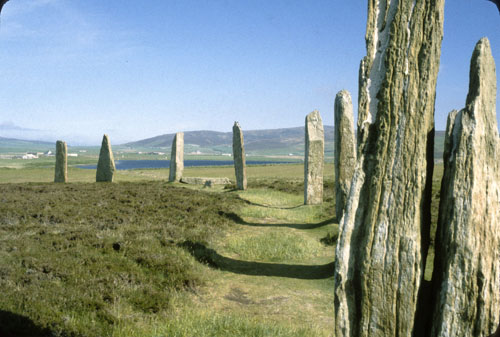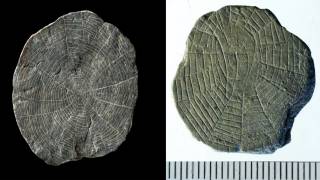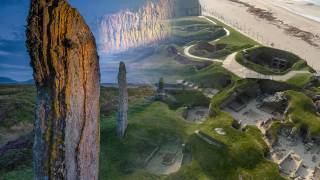The Ring of Brodgar, the Neolithic Henge of Orkney Island
Source: ancient-origins.net
On the largest island of Orkney, Scotland called The Mainland, amongst the rugged cliffs and almost constant wind, there sits a Neolithic henge and stone circle known as The Ring of Brodgar. It is the third largest circle in the British Isles after Avebury & Stonehenge. Built in a true circle, the Ring of Brodgar is thought to have been originally composed of 60 individual stones, though presently there are 27 intact. The stones themselves are of red sandstone and vary in height from 7-15 feet. The stones are surrounded by a large circular ditch or henge.Orkney is located in a truly fascinating area made up of around seventy islands, most of which are uninhabited. There are ancient monuments on nearly every corner of the islands and most of the nearly 3,000 identified Neolithic sites in the area are in remarkable condition. The earliest surviving mention of the Orkney Islands comes to us from the accounts of Roman geographer Diodorus Siculus in 56BC.

Orkney - Ring of Brodgar , Wikimedia Commons
The Ring of Brodgar was constructed around 2600BC, within a hundred years of the Great Pyramid of Cheops in Egypt. The astronomical importance of Stonehenge and Avebury are well documented and the same is true for the Ring of Brodgar. It seems that Brodgar was part of an enormous prehistoric ritual complex that also incorporated The Stones of Stenness, one mile to the Southeast & the Ring of Bookan to the Northwest. Interestingly, if you were to overlay the stars of Orion’s Belt over a map of Stenness, Brodgar and Bookan you get a matching layout.
Why were they built?
Theories about the true purpose of the Ring of Brodgar and the surrounding sites are many and varied. Festivals of thanks, places for animal sacrifice, general meeting areas, religious temples, and funerary complexes are just some of the explanations that have been given. However, in the 1960s a man named Alexander Thom concluded that the Ring of Brodgar and many of the other megalithic sites in the area were astronomical observatories. An expert in the field of archeo-astronomy, Thom spent decades studying the stone circles. He discovered that all these sites seemed to show remarkable geometric precision despite having been built long before the age of Pythagoras.
Thom said, “The Brodgar site is the most perfect example of a megalithic lunar observatory we have left in Britan. The ring and ditch were probably placed on this hill at first because from here there are four far-sights marking the approximate position for the rising and/or setting of the moon at the major and minor standstills. Large mounds were built so that watchers could be placed on the top to warn people below of the impending rising of the moon.”
This would mean that the Ring of Brodgar was part of a scientific instrument. For its ancient users it may well have provided a horizon that was perfectly flat in all directions and allowed the heavens to be viewed as an exact hemisphere.
[...]
Read the full article at: ancient-origins.net
Tune into Red Ice Radio:
James Swagger - Hour 1 - The Newgrange Sirius Mystery
Hugh Newman - Earth Grids, Megaliths, Sacred Sites, Fertility Technology & Indigo Children
Hugh Newman - Megalithomania(cs) & Megalithic Mesoamerica
Hugh Newman - Megalithic Sites of New England, Global Earth Energies & Lake Titicaca
Lloyd Pye, Brien Foerster & Jerry Wills - Hour 1 & 2 - Human Origins & Lost Races
Maria Wheatley - Hour 1 - Geodetic System of Earth Energies and Ley Lines
Dennis Price - The Dark Side of Stonehenge
Nils-Axel Mörner - Hour 1 - Ale’s Stones: The Sun Ship Calendar






















